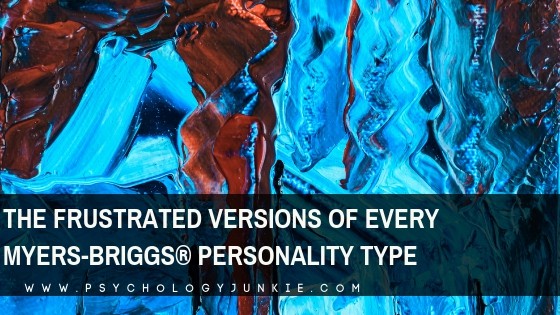Here’s What You’re Like When You’re Angry, Based On Your Enneagram Type
We’ve all experienced moments of anger, whether they’re fleeting annoyances or full-blown rage. But have you ever considered how these expressions of anger can be influenced by your Enneagram type? Understanding how our inherent personality traits influence our reactions and behavior when angry can be a game-changer in your personal life and relationships. Join us as we unravel the fascinating relationship between your Enneagram type and anger, how it shows up, and how to cope.
Not sure what your Enneagram type is? Take our free questionnaire here

Enneagram 1 Anger
When Ones first become angry, the initial feeling is often one of resentment.
“Why can’t others be more competent?”
“Why is everyone so impractical?”
“Why isn’t this person more responsible?”
They may also question the morality of others’ intentions and behaviors.
“I feel like I’m being manipulated”
“Are they tricking me?”
“Are they using me?”
Messiness and disorder amp up this feeling of anger and make it more likely that the One will explode. They hate feeling like their life is out of control and they can’t “keep up” with the tasks around them. Dependability and control and order is so important to them and physical signs that their life is not how it should be (messy rather than clean and orderly) only further fuels their anger as well as feelings of helplessness.
Eventually, this resentment builds into self-justification and intense rigidity and tension. Over time, this creates physical manifestations of stress, such as a rigid jaw, clenched fists, and a knot of tension in the stomach.
Finally, their pent-up frustration results in an outburst of indignation, a forceful demonstration of their displeasure and frustration. They let it all out! Their criticism, their blame, their frustration.
But does this solve the problem?
Unfortunately, the answer is no. In fact, it usually makes the One feel worse than before. Now they feel that they’ve lost control; and in their outburst they feel they’ve let themselves down. They haven’t been “perfect”. This display of emotion is one that they’ve tried to hold in for a long time, and now that it’s out of the bag, they regret it. This regret gives way to feelings of remorse and guilt, completing the full cycle of their anger response.
What to Do Instead:
Ones, it’s essential to understand that repressing your anger, as you often do, doesn’t serve your well-being or personal growth. Repression only leads to a buildup of tension and ultimately, regrettable outbursts. Instead, consider healthier outlets to process your anger early on. Journaling, for instance, can be beneficial. The act of writing down your feelings helps clarify your thoughts, allowing you to understand what’s truly causing your anger.
Speaking to a neutral third party, such as a friend or a therapist, can also be therapeutic. They can provide fresh perspectives and unbiased advice that you may not have considered. An outside viewpoint can help you see situations objectively, preventing unnecessary resentment or guilt.
Practicing meditation can also be extremely beneficial. Meditation encourages mindfulness, helping you to stay calm and see the situation objectively. It allows you to separate your feelings from your thoughts, reducing the intensity of your anger. Once you’ve had time to process your feelings, you can then calmly address the issues that are causing friction.
Discover more about Ones: Escaping the Trap of Resentment for Enneagram Ones
Enneagram 2 Anger
When Twos become angry, it is often a result of feelings of being unappreciated or uncared for. With their generous, sacrificial nature, Twos give abundantly, but when they sense they are taken for granted or used, disappointment and resentment begin to grow.
“Why can’t they see all I’ve done for them?”
“Do they not appreciate my efforts?”
“Why haven’t they returned any of the generosity I’ve given them?”
They grapple with a mounting pile of unmet personal needs and wants, but they continue giving to others. They avoid asking for help, worrying that it will destroy their image of being selfless or “the helpful one.” Feelings of rejection may creep in, adding fuel to the fire. Suddenly they feel like everyone is just using them, taking them for granted, and that they’ll never feel satisfied or truly loved.
This buildup of dissatisfaction eventually results in an intense, often sudden emotional outburst. They might become accusatory, expressing their feelings in a torrent of emotions. Alternatively, they might choose to withdraw, giving the silent treatment, or disappearing altogether in hopes that their absence will make others realize their worth, that they have done so much for them and how much they value the relationship.
What to Do Instead:
Twos, it’s crucial to acknowledge that while giving to others is laudable, you must also prioritize your own needs and emotions. The realization that it’s okay to ask for what you need is an essential part of personal growth. You can’t continually deny your own wants and needs and give to others without becoming drained and empty inside. It’s like pouring water from a pitcher that is empty; impossible.
When you start to feel underappreciated or used, communicate your feelings to the other party. Honesty can often rectify situations before they escalate. Regularly practicing self-care is also a great strategy to keep resentment at bay. Take time to do things that you love and make you feel appreciated. Make a list of things that you enjoy doing alone and prioritize that alone time every day; even if it’s just for 15 minutes.
It’s also beneficial to have an emotional outlet, be it a trusted friend, a diary, or a professional therapist. They can provide a fresh perspective and unbiased advice, helping you cope with feelings of rejection before they turn into resentment. Remember, it’s not a weakness to express one’s feelings and needs; in fact, it’s the key to maintaining healthy relationships and a balanced mental state.
Find out more about Twos: 10 Signs of an Unhealthy Enneagram 2
Enneagram 3 Anger
For the Threes, anger often stems from obstacles that hinder their progress towards goals. They value efficiency, decisiveness, and recognition for their efforts and they become irate when these are threatened.
“Why can’t they make a decision?”
“Why can’t things move faster?”
“I’ve worked so hard, why can’t they see that?”
These are just some of the questions they grapple with, as they find themselves battling feelings of inefficiency, criticism, and lack of recognition.
Failure is another experience that hits Threes especially hard. They have a deeply rooted need to succeed in order to feel worthwhile, making any perceived failure or insult to their image a source of intense anger. This anger is often directed inward, at themselves. They may start to feel overwhelmed with shame at their perceived failure; feeling that they will never be worthwhile.
Anger for Threes tends to initially manifest as impatience, gradually escalating to irritability and eventually to pressure and demands on others to expedite progress. Threes care about their image a lot, so they tend to push down their anger so as to avoid looking “out of control”. These types always want to appear unflappable, competent, and charming. But even Threes can occasionally explode in outbursts of hostility and irritation.
What to Do Instead:
Threes, it’s crucial to recognize that setbacks and obstacles are part and parcel of every journey to success. In fact, failure is often a learning experience, and when processed properly can lead to better success than ever. Learn to take failure in stride and try to find the nugget of wisdom inside each struggle.
Now let’s move on to your feelings of anger. Should you repress them? No. You must acknowledge your feelings of anger and try to understand their root cause before they escalate. Breathing exercises, physical activities, or even a brisk walk can help in managing the initial bursts of impatience and irritability. After you’ve calmed down your body and the irritability you feel, try to journal what’s making you angry and find its root cause. Then, in a calm state, figure out how you can address the situation most effectively.
Threes, always remember that your value extends far beyond the laurels you’ve earned or the milestones you’ve achieved. You are a unique blend of talents, emotions, insights, and experiences that makes you irreplaceable and valuable. As you journey on your path of personal growth, consider engaging in activities that aren’t centered around you – activities like volunteering. Dedicating your time and skills to causes that resonate with you can provide a fresh perspective and offer the gratifying realization that success comes in many forms, not just accolades. Helping others can be enriching, rewarding, and a beautiful reminder that the intrinsic worth you possess is not just tied to your accomplishments.
Discover more about Threes: Escaping the Trap of Vanity for Enneagram Threes
Enneagram 4 Anger
Fours are deeply affected by feelings of disappointment, abandonment, and invisibility. Their anger can be sparked by feeling invisible, misunderstood, or uninspired.
“Why can’t they see me for who I really am?”
“Why do I feel invisible?”
“Why does life seem so lackluster and meaningless?”
These are common frustrations that ignite the Four’s anger. Fours also get upset when they feel their life lacks significance or depth. They don’t want to just lead an everyday, shallow life. Rather they seek meaning, passion, intensity, and purpose. Often they have an idealized image of what their life should look like or the relationships they feel they should have. When life doesn’t add up to these idealized images they can feel empty, disappointed, and frustrated. Dealing with insincere or phony people makes it even worse.
Initially, their anger may manifest as moodiness or a sense of withdrawal. Over time, it may escalate to bouts of depression or even intense, emotional outbursts often accompanied by tears. This whole process is hugely frustrating for Fours because they hate showing all their emotions, especially when they feel that no one really sees them for who they are in the first place and they fear they’ll only be further misunderstood.
What to Do Instead:
When feelings of anger begin to surface, take some time to calm your body and mind. You can do this through practices such as deep breathing exercises, mindfulness, or yoga. Physical activities like a brisk walk or dance can also help alleviate the initial pangs of irritation or frustration.
Constructive communication is a powerful tool when you feel misunderstood or neglected. Try to express your feelings to the other person without expectation or blame. Remember, everyone is battling their own challenges and may not always meet the idealized image in your mind. Acceptance of this fact can bring a lot of peace and decrease feelings of anger and rejection.
Experiment! Try to channel your emotions into creative outlets. Fours are often artistically inclined, and art, music, writing, or any form of creative expression can be a great way to vent your feelings in a healthy manner. Embrace your emotions, use them as fuel for your creative projects, and you may find a cathartic release that not only alleviates your anger but also leads to beautiful, emotional, and genuine creations.
Lastly, seek support when needed. Whether it’s a trusted friend, a family member, or a mental health professional, having someone to talk to can provide a new perspective and aid in managing your emotions more effectively. Remember, it’s okay to ask for help, and doing so is a testament to your strength, not your weakness. As you navigate through this journey of personal growth, always know that your worth extends beyond others’ ability to see or understand you. You are enough, just the way you are.
Find out more about Fours: The Enneagram 4- The Individualist
Enneagram 5 Anger
Fives feel a burst of anger and frustration when there are a lot of demands placed on them, especially when these demands are of an emotional nature. Their private time is precious to them, and when it is invaded or claimed by others, they feel irritable and overwhelmed. This is especially the case when there is an overload of emotional input or when they are subjected to too much stimulation. The feeling of intrusion becomes overwhelming when they need time alone to restore their energy but find it unattainable.
“Why do they need so much from me?”
“Why can’t I just have some peace?”
“Why does everyone want a piece of me?”
These are common frustrations that incite anger in Fives. Initially, they may withdraw and withhold, attempting to hide their rising anger. As tension and frustration build, they may become snarky, sarcastic, or display an air of arrogance towards others. They may feel like people who can’t control their emotions or are intruding on their time are too weak or out of control to handle things on their own as they often do. On occasion, this suppressed anger can explode in short bursts, usually followed by a self-imposed period of isolation.
What to Do Instead:
It’s essential for Fives to proactively manage their boundaries. Clearly communicate your need for personal space and set reasonable limits on your availability. If you feel overloaded, take small breaks to recharge, even if it’s just a few minutes of solitude.
Try to look objectively at the demands on your time. Are you angry because there are too many demands or because there are any demands at all? You are good at seeing things rationally. Look at your situation from this perspective to determine whether you’re being pushed unfairly outside your boundaries or whether you’re perhaps too attached to your privacy or alone time and indignant at any amount of outside demands.
Engaging in mindfulness practices can help manage your response to emotional input and stimulation. Techniques such as deep breathing, meditation, or visualization can help bring calmness and clarity in moments of tension.
When you feel infringing demands, rather than withdrawing and bottling up your anger, express your feelings assertively yet respectfully. Make sure not to let your frustration drive these conversations; instead, let your need for personal space and understanding be the driver.
Take time to understand and accept that everyone has different emotional needs and tolerances. Just as you need your space, others might need emotional interactions. Finding a healthy compromise can help to mitigate the feelings of being intruded upon.
Discover more about Fives: 7 Struggles of the Enneagram 5 Type
Enneagram 6 Anger
Sixes feel an overwhelming sense of anger when they encounter inconsistency in life or when they are surrounded by unreliable people. Trust is crucial for Sixes, and a breach of trust or feeling of betrayal can ignite their fury like nothing else. When their fears and anxieties aren’t taken seriously, they also tend to get riled up and irritated. They yearn for stability and security, and when they feel cornered, unsafe, or unsupported, their anger escalates.
“Why can’t people be more reliable?”
“Why don’t they respect me?”
“Why doesn’t anyone take my warnings seriously?”
These are the common frustrations that provoke anger in Sixes. Initially, they may use quick wit and sarcasm as a defense mechanism, making biting remarks or using defiant humor. As this anger festers, it can evolve into accusatory and blaming behavior, with Sixes defensively lashing out or making projections onto others.
What to Do Instead:
Sixes can try out a variety of strategies to cope with anger more effectively. Stress and anxiety reduction techniques, such as deep breathing exercises, progressive muscle relaxation, and mindfulness, can be beneficial. These techniques can help you stay calm and centered, even when circumstances feel uncertain or people seem unreliable.
Try to cultivate acceptance of the fact that life is inherently unpredictable and that people are fallible. This acceptance can give you a sense of peace and reduce feelings of anger associated with the natural unpredictability of the world around you.
Building periods of rest and relaxation into your schedule can also be beneficial. Engage in activities that you enjoy and that help you feel calm and grounded, whether that’s reading a book, taking a walk in nature, or practicing yoga.
Remember, it’s also important to communicate your feelings clearly and assertively. If you feel disrespected or that your fears and anxieties are not being taken seriously, express this to the relevant individuals in a non-accusatory manner. Clear communication can prevent misunderstandings and foster healthier relationships.
Finally, consider seeking support from trusted individuals, whether they are friends, family, or professionals. They can provide a fresh perspective and help you navigate your feelings of anger and frustration more effectively. Remember, it’s okay to ask for help and doing so is a sign of strength, not weakness.
Discover more about Sixes: 7 Struggles of the Enneagram Six Type
Enneagram 7 Anger
Sevens feel a deep surge of anger when they are faced with constraints or restrictions that get in the way of their freedom, or prevent them from getting what they want in the moment. This also extends to their social surroundings. Spending time with people who are negative, melancholy, or criticical can trigger their frustrations. Sevens detest feeling restrained, obligated, or bored. Mundane tasks and tedious chores further amplify this feeling of discontent.
“Why can’t I do what I want?”
“Why do they always have to be so negative?”
“Why am I stuck doing this boring task?”
These are common frustrations that ignite anger in Sevens. When Sevens are angry, they tend to become curt, dismissive, and exhibit a more fast-paced, impatient demeanor. Complaining and venting follows, and then eventually they can erupt into a short, intense outburst. One Seven I knew had a habit of throwing whatever was nearby across the room when they were angry, stomping off and shouting. Yet often they’d be more controlled and perhaps even laugh about it fifteen minutes later.
What to Do Instead:
For Sevens, it’s crucial to embrace activities that encourage mindfulness and physical engagement. Engage in physical activities like walking, jogging, or yoga to help channel your energy and maintain a focus on your internal state. These activities can serve as tools for introspection, allowing you to understand and manage your anger more effectively.
Ensure that you set aside time for activities that ground you in the present moment rather than seeking constant stimulation or distractions. This could be as simple as observing your surroundings, practicing deep breathing exercises, or taking a moment to savor a cup of tea.
Try to develop an acceptance of limitations and understand that they are an inevitable part of life. Remember, not all limitations are negative; they can often serve as a catalyst for creativity and problem-solving.
Lastly, if you find yourself around negative or critical individuals, communicate your feelings respectfully, and if needed, distance yourself. It’s essential to surround yourself with positivity, but also to understand that everyone has their struggles, and empathy goes a long way in maintaining healthy relationships.
Find out more about Sevens: The Enneagram 7 – The Enthusiast
Enneagram 8 Anger
Eights experience intense anger when they are faced with people who won’t stand up for themselves or who seem “weak.” They have a distaste for people who seem artificial, those who appear manipulative, or people who act in a sycophantic way. Being restricted or micro-managed is an especially frustrating thing for them that can spark their anger in an intense and immediate way.
Eights tend to express their anger through direct confrontation or armored withdrawal, a complete separation or cessation of the relationship, rather than passive-aggressive silent treatments. They may even seek out ways to enact revenge.
“Why can’t people stand up for themselves?”
“Why do they have to beat around the bush?”
“Why do I feel like I’m being manipulated? Don’t they know I hate that?”
These are common frustrations that ignite anger in Eights. Their anger is not subtle or hidden. Instead, it’s explosive, direct, and confrontational. They tend to meet conflicts head-on, choosing to tackle the issue openly rather than stewing in resentment.
What to Do Instead:
For Eights, the key to effectively managing anger lies in slowing down a bit. Instead of immediately reacting with a physical or intense outburst, take a moment to pause, breathe, and explore what’s going on inside you. Is the individual or situation truly deserving of your anger, or is there another underlying issue at play? This consideration can help align your reactions more closely with the genuine source of your discomfort.
Mindfulness and self-awareness are crucial tools in this process. They allow you to stay tuned into your emotional state and recognize when your anger is brewing before it reaches a boiling point. Regular practice of mindfulness exercises, such as meditation or deep-breathing exercises, can help you maintain this awareness.
Also, embrace authenticity. Encourage honest, open communication and assert yourself in a respectful manner. This approach will help you foster healthier relationships and reduce the likelihood of misunderstandings that could potentially ignite your anger. Understanding that everyone has their own struggles and strengths and respecting these differences can also help to reduce feelings of frustration and foster mutual respect.
Want to know more about Eights? The Enneagram 8 – The Challenger
Enneagram 9 Anger
Nines get angry when they feel that their inner peace is disrupted or they are being forced to face negative or difficult issues and feelings. They feel a surge of anger when they are treated as unimportant or invisible. Even though Nines tend to give others priority in many situations, they still want to feel their own sense of personal freedom and respect.
When they feel controlled or pressured to do something against their will or when they are pushed to voice their opinion before they are ready, it can make them intensely distressed and irritable. They hate being pressured, pushed, or controlled. They especially hate being around angry, mean, or pushy people or having to deal with conflict or confrontation. Sometimes this is good. After all, meanness should never be tolerated. But sometimes Nines get angry simply because others want to have an honest conversation about a difficult subject that Nines are trying to avoid.
“Why don’t they see my worth?”
“Why do they have to push me?”
“Why can’t I have some peace?”
These are common frustrations that stoke anger in Nines. When Nines are angry, their response is typically passive-aggressive, including stubbornness, complaining, or snarky humor. However, after a prolonged period of holding in their frustration and anger, they may boil over and explode in a rare display of intense anger.
What to Do Instead:
As a Nine, the first step is to become aware of situations where you are avoiding confrontation or discomfort, thereby repressing your anger. Understand that developing a healthy relationship with your anger is crucial. Recognize that it is not a negative emotion but a powerful tool given to you to to help you identify your values and needs and stand up for yourself or others.
Practice taking a stand for yourself more assertively without feeling guilty. Understand that advocating for your needs does not make you a bad person. Regularly engage in activities that help you connect with your inner self and desires. This could involve journaling, meditation, or even solitary walks in nature.
Try active listening when dealing with potential conflict situations. Instead of shutting down or responding passively, make an effort to understand the other person’s perspective. This helps to create an environment of mutual respect and understanding, reducing the likelihood of conflict.
Want to learn more about Nines? Enneagram Type Nine: The Peacemaker
What Are Your Thoughts?
We’d love to hear from you! Do you have any additional insights when it comes to handling anger? Do you find any of the suggested strategies particularly helpful? Perhaps you have your own unique methods or techniques that have proven effective. Please feel free to share your thoughts, experiences, or tips in the comments section below. We appreciate your contribution to this discussion and look forward to learning from your shared wisdom!














“Their anger is not subtle or hidden. Instead, it’s explosive, direct, and confrontational. They tend to meet conflicts head-on, choosing to tackle the issue openly rather than stewing in resentment.” So very true!! With ADHD I can’t really control it.. I don’t think I’m mean or say stuff I don’t mean, but the attitude is there. Once I had friends who were curious to see me angry, see what it looks like. It happened once, I wasn’t angry at them but I was so furious. They looked quite scared and afterwards said they would have preferred not to see it. I wasn’t mean at them but yeah I was speaking in a very furious tone… I haven’t found an efficient way to manage it, also because ADHD which means I don’t have efficient filters.
“Instead of immediately reacting with a physical or intense outburst, take a moment to pause, breathe, and explore what’s going on inside you. Is the individual or situation truly deserving of your anger, or is there another underlying issue at play?” I can’t ^^’ I don’t realise what’s happening until it’s too late, also it arrives really really fast. It’s a bit like saying “just cross the highway running, and if a car is about to hit you, jump on the side”. Yeah no… just won’t work.
Also quite often, depends who it is, I don’t even want to calm down. They provoked my anger, they’ll deal with it. If I keep it inside, it’s like a hurricane that would destroy me from inside, so I might as well release it on the person who invoked it.
To prevent this, I sometimes try to act really nice, like with my neighbours. But this charming person thought I was a doormat so he started acting condescending. Mistake. I got quite aggressive and he shouldn’t try to test my condescending abilities. But since he’s your garden-variety misogynist, he just thought I was being hysterical for asking him not to build furniture until the middle of the night. INTP. Hysterical and irrational, because woman. INTP. Yup, that’s me.